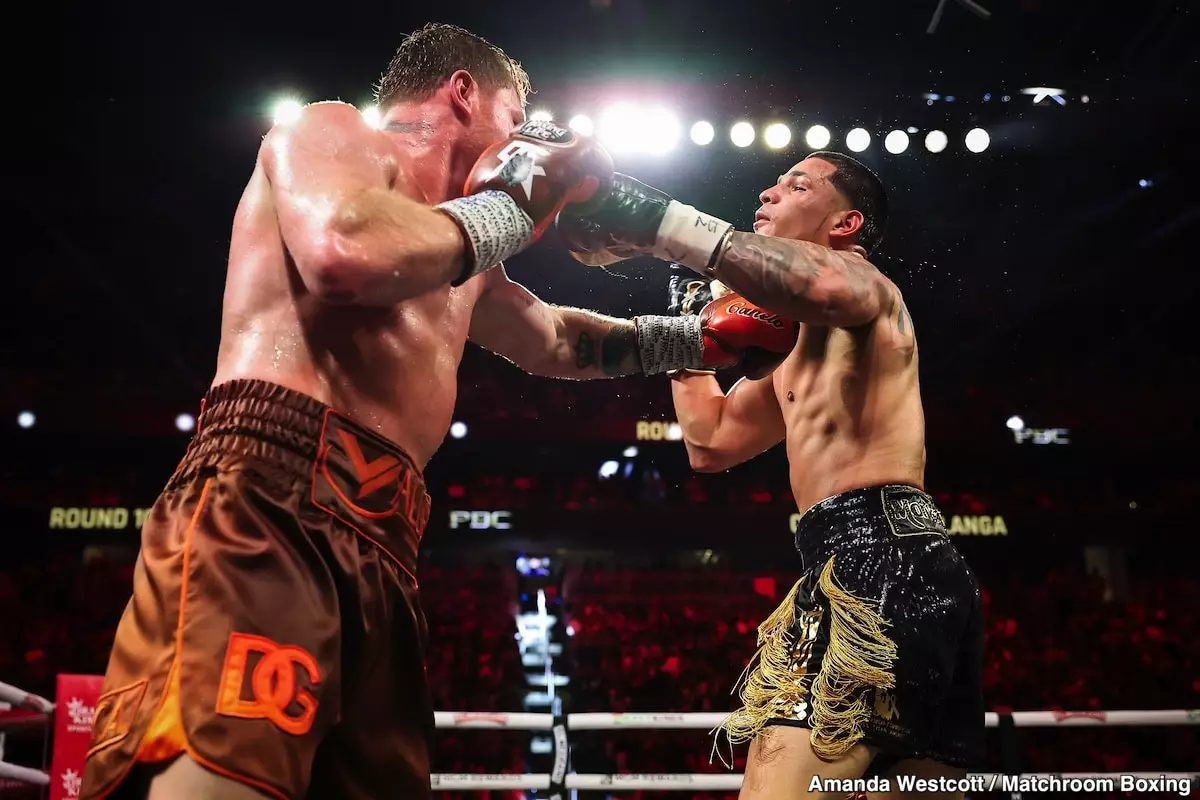In the world of boxing, rivalries often fuel narratives that extend beyond the ring. The latest episode in this ongoing saga involves two fighters: Edgar Berlanga and Gervonta “Tank” Davis. In a dramatic turn of events, Berlanga has made headlines by declaring that Davis is “not allowed in Puerto Rico.” The remarks stem from Davis’s criticism of Berlanga’s celebration of his recent fight against Canelo Alvarez, which Davis characterized as “celebrating failure.” This article delves into the underlying currents of this rivalry and the implications for both fighters in their respective careers.
The Fight that Sparked the Controversy
On September 14th, Berlanga faced off against Canelo Alvarez in a much-publicized match. Despite going the distance, the fight was largely one-sided, leading many fans to question Berlanga’s ability to compete at an elite level. Davis’s comments emphasize a key point of contention: that Berlanga should not take pride in a fight that did not yield a victory. For Davis, it reflects a mindset that prioritizes winning over mere participation. Berlanga, however, seems to perceive the experience as a badge of honor, suggesting a fundamental divergence in their attitudes toward success and failure within the sport.
The Mindsets of Two Fighters
As the rivalry intensifies, it becomes clear that Berlanga and Davis embody contrasting philosophies regarding their boxing careers. Berlanga appears to have adopted a more optimistic outlook, viewing his battle against a legendary champion like Canelo Alvarez as an accomplishment in itself. This perspective may resonate with some fans, but it raises questions about Berlanga’s aspirations and readiness to face tougher opponents, particularly after passing on high-profile fights against fighters like David Morrell and Caleb Plant.
Conversely, Davis represents a more traditional approach to boxing that prizes championships and higher stakes. By labeling Berlanga’s reaction to his loss as “celebrating failure,” Davis underscores a competitive venom that drives him to constantly seek higher achievements. His dismissal of Berlanga is not merely personal; it speaks to a wider ethos in boxing where mediocrity is not tolerated, and only those who consistently aim for greatness find their place in the conversation of true champions.
In defending his stance, Berlanga did not hold back on his thoughts regarding Davis, labeling him a “hater” and “clown.” His declarations suggest a deeper personal animosity, intertwined with professional rivalry. Berlanga’s indignation stems from the notion that he is being unfairly criticized while he has simply chosen to embrace his experience in the ring. His threats of stripping Davis “butt naked” if he were to visit Puerto Rico reveal a layer of tribalism that transcends boxing and reflects deeper cultural loyalties and emotions.
Moreover, Berlanga’s desire to be celebrated by fans and embrace his cultural roots underscores a longing for acceptance that may have clouded his judgment of what constitutes genuine success in boxing. He perceives the fanfare and recognition he receives as validation, even if others perceive it as a misguided celebration of defeat.
As the rivalry continues, both fighters face pivotal moments in their careers. For Berlanga, the criticism may provide a wake-up call regarding his approach to future fights and the reality of expectations at higher levels. His remarks and emotional responses could lead to opportunities but also risk alienating potential fans and future rivals.
On the other hand, Davis’s escalating rhetoric positions him not only as a fighter but also as an influencer in the overall boxing narrative. His ability to frame his criticism and capitalize on rivalries illustrates the strategic mind behind his approach, one that could ultimately lead to lucrative bouts and an enduring legacy.
As we look forward, the dynamics between Berlanga and Davis will not only influence their careers but potentially reshape the landscape of boxing rivalries. The contrasting philosophies embodied by both fighters will continue to evoke strong responses from fans and analysts alike. Ultimately, their journey highlights the complexities of success and failure, and the personal battles that unfold long after the final bell rings. This rivalry is one to watch as it promises to unfold in unexpected ways, perhaps reshaping the destinies of both fighters involved.

